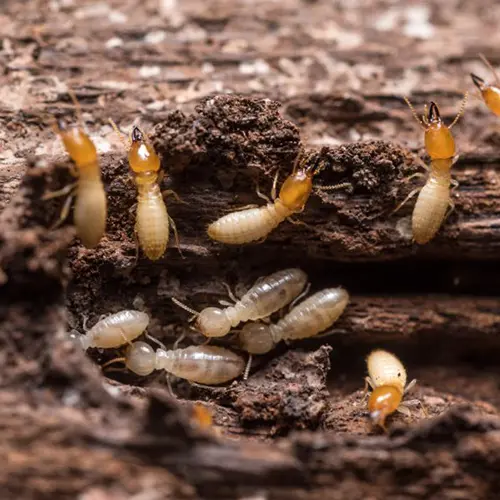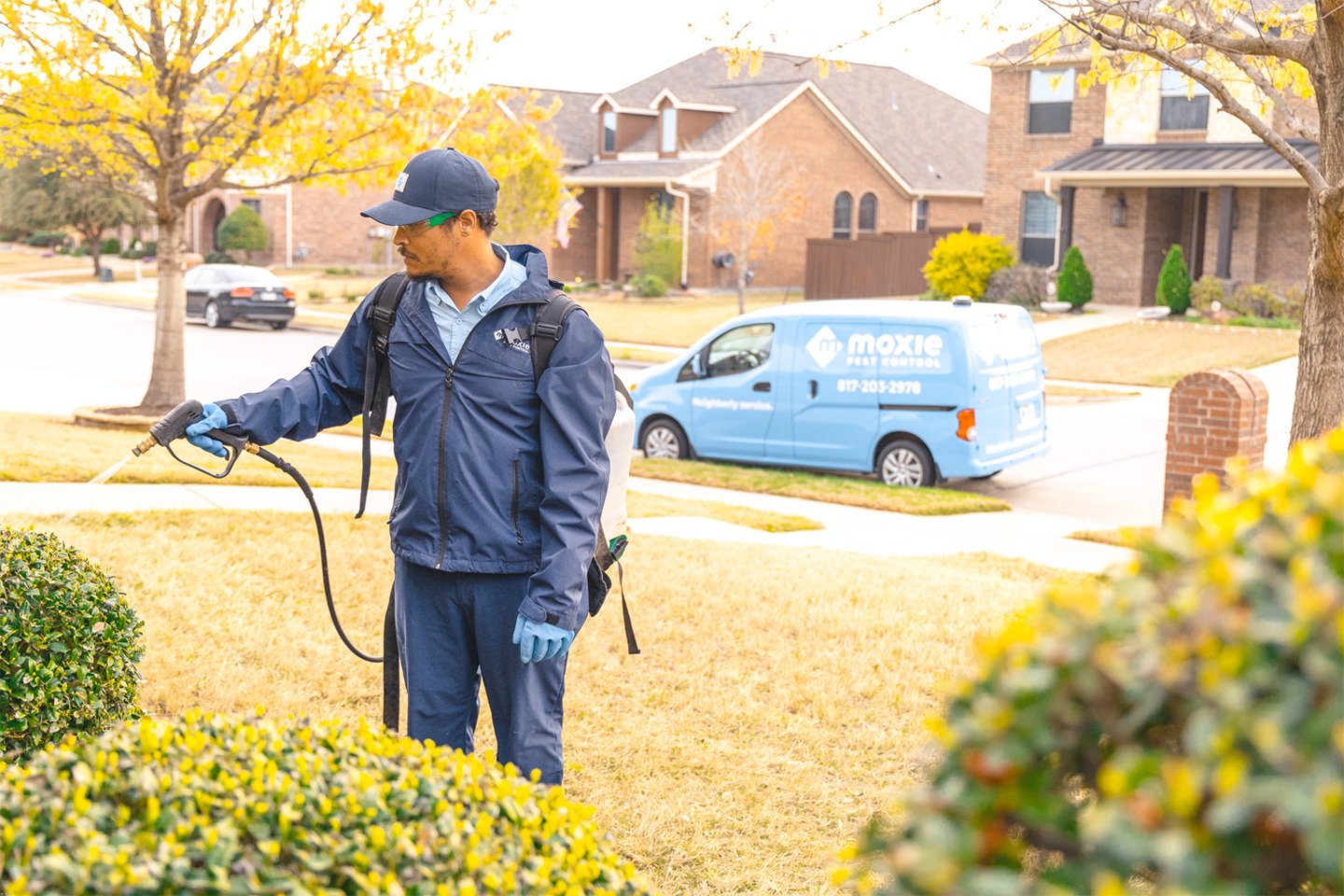Professional Rodent Control Port Charlotte to Stop Damage to Your Home
Reveal the Value of Insect Control in Preserving a Healthy Setting and Therapy Techniques

The Role of Parasites in Ecological Communities
Insects, often watched entirely as hassles, play a diverse duty in communities that is crucial for keeping environmental equilibrium. They contribute dramatically to various eco-friendly processes, including pollination, vitamins and mineral cycling, and insect control. For example, numerous insect varieties, such as butterflies and bees, are crucial pollinators for a large array of plants, which consequently sustains biodiversity and food manufacturing.
Furthermore, bugs work as prey for various predators, producing a critical link in food webs. This connection makes certain the survival of various species and assists control populations within environments (Termite treatment Port Charlotte). In addition, decomposer pests, such as certain beetles and fungi, contribute in damaging down raw material, hence enhancing dirt and promoting vitamins and mineral recycling.
Conversely, while bugs can be useful, their overpopulation or invasion into non-native settings may disrupt these ecological features. This intricacy highlights the value of comprehending insect dynamics, as effective pest monitoring techniques should consider both their ecological duties and possible effects on human activities. Stabilizing pest visibility while minimizing injury is essential for preserving the honesty of ecological communities and making sure agricultural productivity.
Wellness Dangers Connected With Insects
The visibility of bugs in different environments prolongs beyond their eco-friendly functions, as they also pose substantial health threats to pets and people. Many bugs, including bugs, bloodsuckers, and rodents, are providers of diseases that can have severe health ramifications. As an example, rodents are understood to transmit hantavirus and leptospirosis, both of which can result in extreme breathing and kidney concerns, respectively.
Bugs such as ticks and insects are infamous for spreading out vector-borne illness like jungle fever, dengue fever, and Lyme disease. These health problems can result in high morbidity and mortality rates, especially in at risk populations. Furthermore, parasites like insects and roaches can aggravate allergies and asthma, adding to breathing troubles in individuals, especially those with pre-existing conditions.
Additionally, the existence of bugs can bring about mental stress and anxiety and pain, impacting overall well-being. Contamination of food and surfaces by insect droppings and stays can cause foodborne health problems, highlighting the importance of preserving sanitary conditions. For that reason, comprehending the health and wellness dangers connected with bugs is essential in identifying the need of efficient parasite management techniques to secure human and animal health.

Advantages of Reliable Pest Control
Efficient insect control is important for keeping a secure and healthy environment, as it consistently minimizes the many risks linked with parasite problems. One of the main benefits of reliable insect management is the decrease of health and wellness hazards.
In addition, efficient pest control safeguards residential or commercial property and frameworks from damage. Many bugs, like termites and carpenter ants, can create comprehensive architectural damage that might need costly repair services. By proactively managing these problems, homeowners and organizations can safeguard their financial investments.
Another considerable benefit is the improvement of general lifestyle. A pest-free setting contributes to mental wellness and minimizes stress related to problems. Effective insect control cultivates a safer setting for animals and youngsters, ensuring that homes remain havens totally free from dangerous chemicals and disease-causing microorganisms.
Typical Bug Control Strategies

In important source the world of insect management, numerous methods are employed to battle invasions effectively. These strategies can be extensively classified into three main strategies: cultural, mechanical, and chemical controls.
Social control includes changing methods to reduce bug establishment, survival, and recreation. This may consist of crop turning, correct cleanliness, and environment manipulation, which jointly create an atmosphere much less for pest spreading.
Mechanical control uses physical methods to get rid of bugs (Termite treatment Port Charlotte). Strategies such as vacuum cleaners, obstacles, and traps are frequently made use of to straight get rid of parasites from a location. This approach is particularly effective for managing rodents and insects without using unsafe chemicals
Chemical control entails the application of chemicals to take care of parasites. These materials can be classified right into fungicides, pesticides, and herbicides, each targeting certain sorts of insects. It is important to utilize these chemicals sensibly, local termite inspectors adhering to safety standards and laws to lessen prospective damage to non-target types and the environment.
Each pest control strategy has its benefits and restrictions, and typically, an integrated approach integrating multiple methods generates the very best cause maintaining a pest-free setting.
Sustainable Pest Monitoring Practices
Sustainable pest administration methods incorporate an array of methods designed to decrease environmental impact while successfully managing parasite populaces. These practices focus on the use of environmentally pleasant methods over chemical pesticides, therefore decreasing the threat of damage to non-target varieties, including valuable pests, wildlife, and people.
Integrated Parasite Administration (IPM) is a foundation of sustainable practices, combining organic, social, mechanical, and chemical tactics to take care of insects. As an example, biological control entails introducing all-natural killers or parasites to reduce parasite populations. Cultural techniques, such as plant turning and polyculture, disrupt pest life process and boost community durability.
Mechanical methods, such as traps or barriers, can effectively avoid pest gain access to without chemical treatment. In addition, keeping healthy communities with correct dirt monitoring, plant health, and biodiversity can naturally reduce insect problems.
Education and learning and recognition are essential components, empowering individuals and communities to recognize insect dangers early and execute precautionary measures. Termite treatment Port Charlotte. By fostering a holistic method that balances insect control with ecological integrity, sustainable pest management techniques not just shield plants and frameworks but also contribute to a much healthier setting for future generations
Conclusion

Recognizing the health and wellness risks linked with bugs is crucial in acknowledging the need of reliable parasite administration methods to protect human and animal health.
Reliable pest control is essential for keeping a risk-free and healthy and balanced atmosphere, as it consistently alleviates the various threats associated with parasite infestations.Integrated Bug Administration (IPM) is a keystone of sustainable techniques, combining organic, social, mechanical, and chemical strategies to pest eliminators take care of insects. By recognizing the role of bugs, identifying involved health dangers, and using diverse treatment strategies, a sustainable method to pest monitoring can be achieved. Integrated Insect Monitoring (IPM) emphasizes a holistic method that minimizes damage to valuable organisms while efficiently regulating parasite populations.